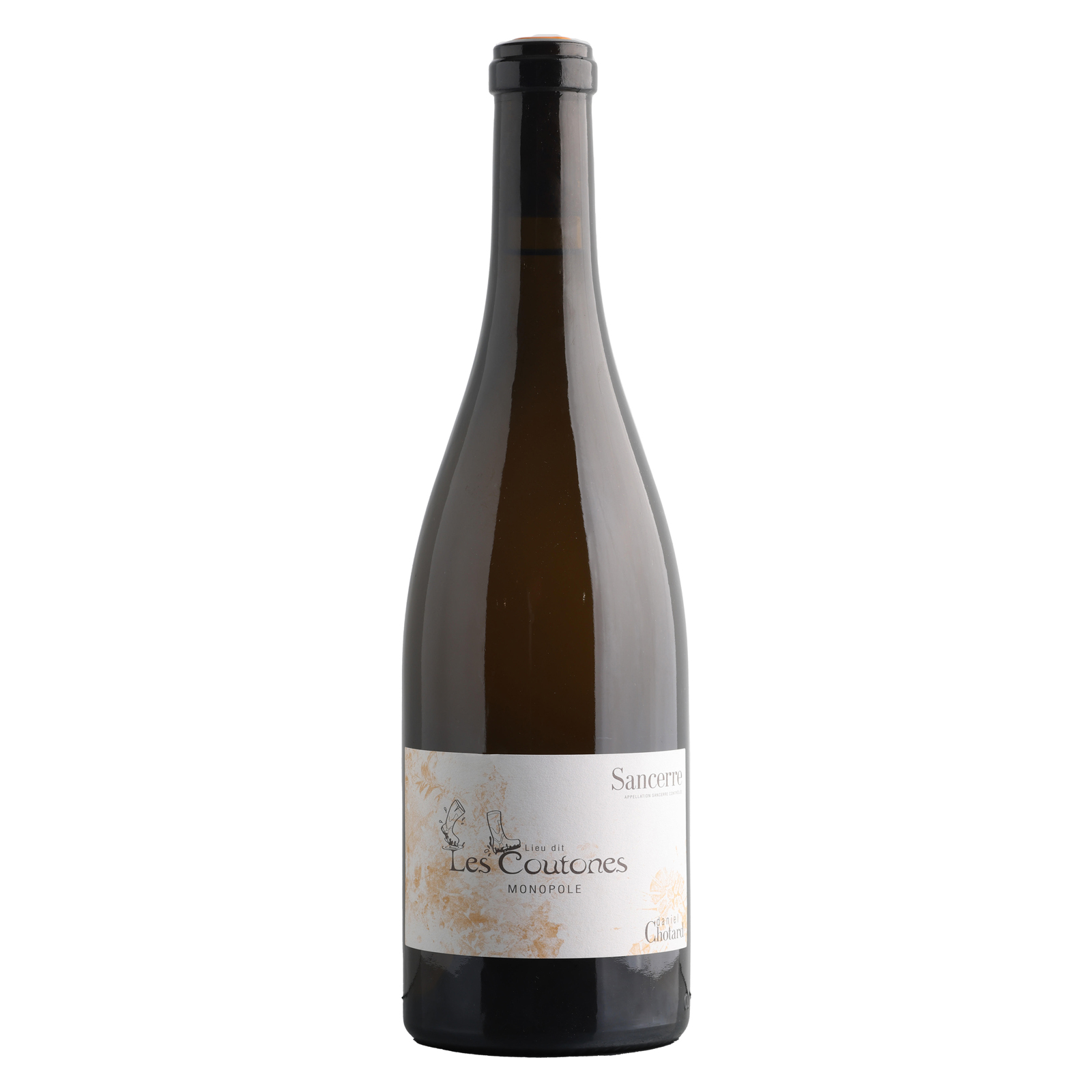Domaine Chotard Sancerre Blanc ‘Les Coutones’ 2018
Type: White
Country: France
Region: Loire Valley
Grape Variety: 100% Sauvignon Blanc
Alcohol Percentage: 13.5%
Viticulture: Organic Farming
Climate: Semi-continental climate
Terroir: Les Coutones is a monopole owned by the Chotards, a steep parcel that sits on a subsoil of Kimmeridgian marl. This type of soil is referred to as Terres Amoureuses because of the way in which the mud “lovingly” sticks to the vigneron’s boots after a rain
Ageing: One of the last-picked parcels each year. Vinified and raised in Foudres. Aged for 1 year, then racked and aged a further 6 months in stainless steel tanks before bottling
Color: Pale yellow
Nose: Fragrant and lifted with great freshness over a complex bouquet
Palate: Powerful, mineral, concentrated and complex with a sizzling freshness. A serious expression of Sancerre
About the Winery:
When not organising music concerts or playing jazz piano and guitar in his own band, or fulfilling his obligations as the current president of the BIVC (Bureau Interprofessionnel des Vins du Centre), Daniel Chotard makes some wine.
There have been vignerons in the Chotard family since 1789, but it was in 1992 that Daniel Chotard resumed work at the Domaine. The Domaine’s vines are situated on limestone slopes in the southwest of the region at Reigny near Crezancy-en-Sancerre, in Loire. In total, the area under vines is 15 hectares, 80% of which is planted with Sauvignon Blanc, with the remaining 20% being Pinot Noir. They farm 40 different vineyard parcels in total.
Daniel Chotard believes the terroir here is crucial in defining his wines. In the vineyard he employs the principles of lutte raisonnée, utilising organic products where and when possible and allowing grass to grow between the vines on the slopes. In the winery, he seeks to constantly maintain and improve his facilities. His aim is to produce a natural wine, true to its origins, with a fine aromatic profile.
For example, for his Sancerre Blanc, he carefully selects yeasts that will not influence the natural aromas of wine, so the mineral expression and the character of the grape variety are not disguised. Ultimately, the philosophy of this musical vigneron can be summed up with his own statement that ‘…good wine is made to bring happiness…’.






